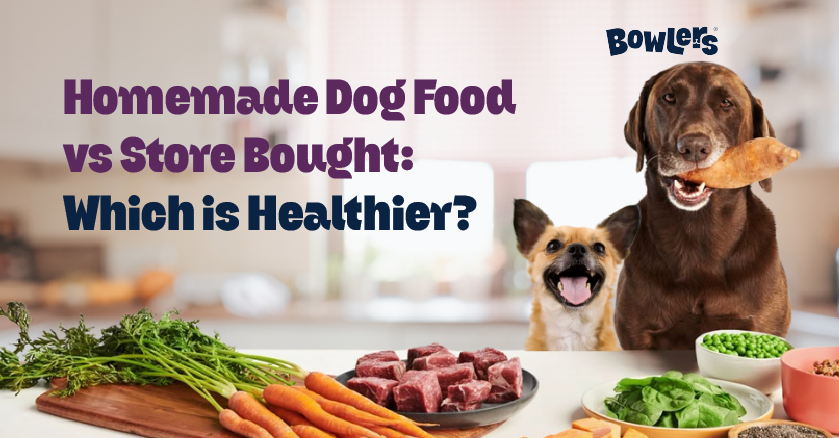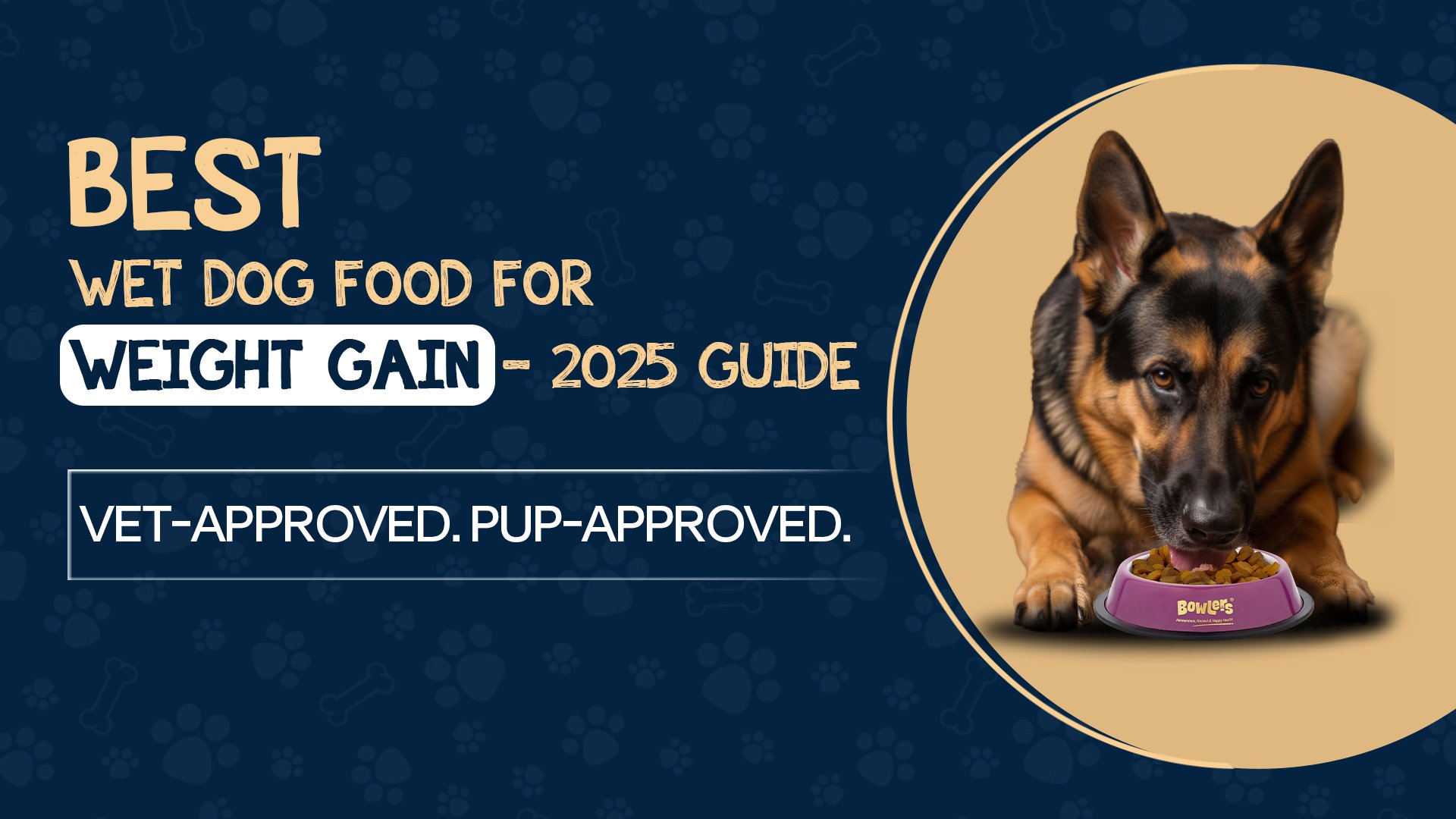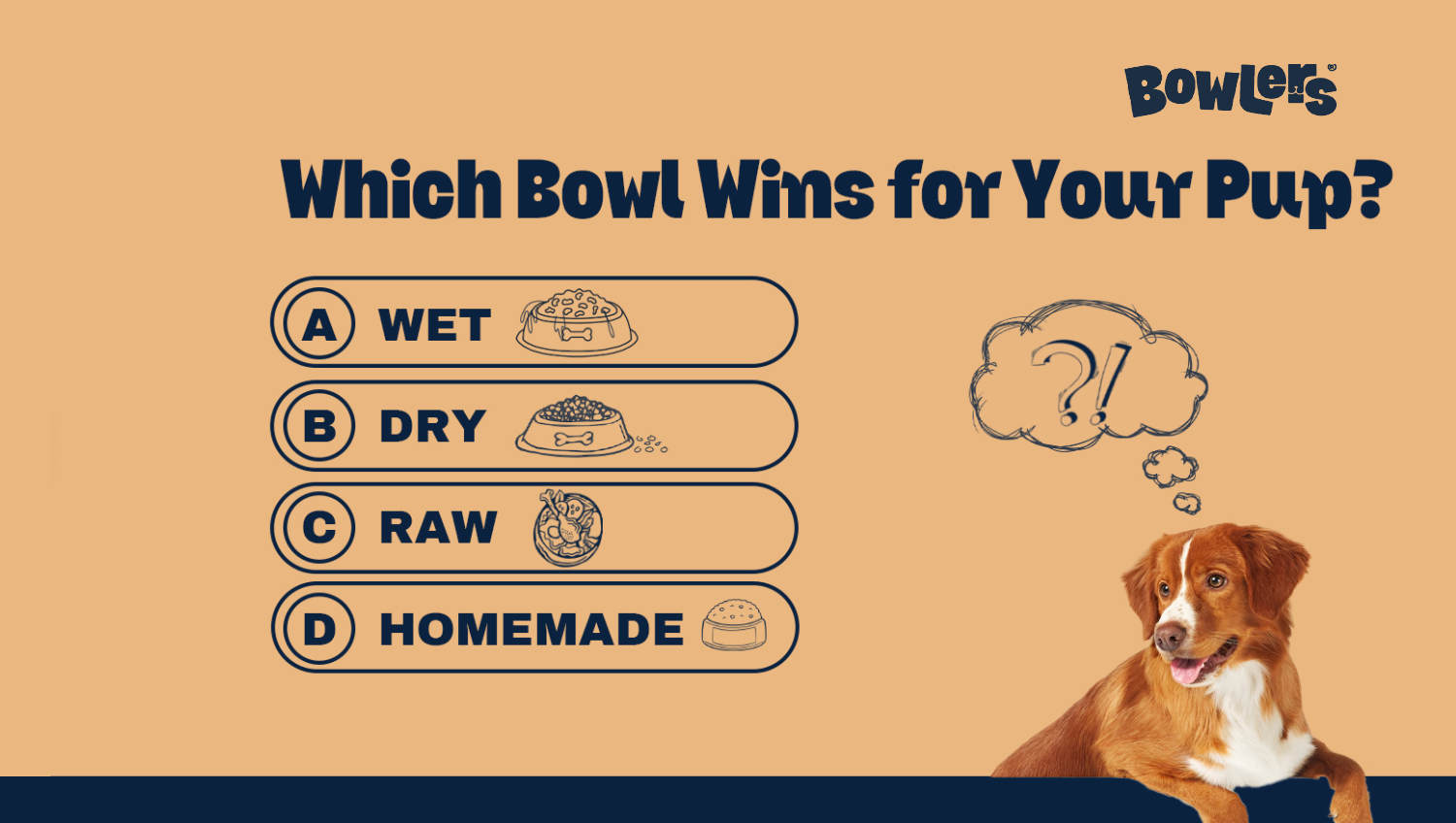Tips Homemade Dog Food vs Store Bought: Which is Healthier?

Table of contents
- The Appeal of Homemade Dog Food
- The Challenges of Homemade Dog Food Recipes
- The Case for Store Bought Dog Food
- Store Bought vs Homemade Dog Food: A Side by Side Comparison
- Building a Balanced Dog Food Plan
- When Homemade Dog Food May Be a Good Option
- When Store Bought Dog Food Works Best
- Dog Feeding Tips for a Healthy Routine
- The Role of Supplements
As a pet parent, you’ve probably asked yourself: “Should I cook for my dog or stick with commercial pet food?” It’s a common debate in the world of canine care, and both sides have passionate supporters. On one hand, homemade dog food recipes give you control over ingredients. On the other hand, high quality store bought food offers balance and convenience.
This article explores the store bought vs homemade dog food question to help you make informed choices. We’ll look at the benefits and risks of each, how to ensure a balanced dog food diet, and where Bowlers fits in as a brand that values transparency and complete nutrition.
The Appeal of Homemade Dog Food
Cooking for your dog feels personal and loving. You know exactly what goes into the bowl and can avoid unwanted additives. Some of the biggest benefits include:
- Control over ingredients – You can use fresh meat, vegetables, and grains.
- Customization – Homemade meals can be adjusted for allergies, preferences, or health conditions.
- Transparency – No hidden preservatives, artificial colors, or fillers.
Pet parents also like the idea of feeding their dog the same foods they eat, at least the ones considered safe human food for dogs.
However, while the intention is good, homemade food has serious challenges. Without expert guidance, it is difficult to create the best homemade diet for dogs that meets all their nutritional needs.
The Challenges of Homemade Dog Food Recipes
Dogs require precise amounts of protein, fat, vitamins, and minerals for long term health. The risks of relying only on homemade dog food recipes include:
- Nutritional imbalances – Too little calcium, too much fat, or missing vitamins can cause health problems.
- Time consuming preparation – Cooking fresh meals daily is not always practical.
- Cost – Sourcing high quality ingredients can become expensive.
- Food safety – Some human foods, like onions, grapes, and chocolate, are toxic to dogs. Even well meaning owners may accidentally include harmful items.
That’s why veterinarians often recommend that if you prepare meals at home, you should consult a veterinary nutritionist to ensure the recipe creates a truly balanced dog food diet.
For more on avoiding pitfalls, see our guide: Common Dog Feeding Mistakes and How to Avoid Them.
The Case for Store Bought Dog Food
High quality store bought food, like Bowlers’ recipes, is designed by experts to meet complete nutritional standards. The key advantages include:
- Nutritional completeness – Commercial foods are formulated to provide daily dog nutrition in every serving.
- Convenience – Ready to serve with clear portion guidelines.
- Quality assurance – Reputable brands follow strict safety standards.
- Life stage specific options – Puppy, adult, and senior formulas are tailored to unique needs.
When choosing store bought food, labels matter. Some brands still use fillers, by products, or artificial additives. That’s why understanding packaging is essential.
To decode marketing claims, read: How to Read Dog Food Labels: What Every Pet Parent Should Know.
Store Bought vs Homemade Dog Food: A Side by Side Comparison
| Factor | Homemade Dog Food | Store Bought Dog Food |
|---|---|---|
| Nutrition | Risk of imbalance without vet guidance | Formulated for complete & balanced diets |
| Convenience | Time consuming to cook daily | Ready to serve |
| Cost | Can be high depending on ingredients | Wide price range, often more cost effective |
| Safety | Risk of harmful ingredients | Regulated and tested for safety |
| Customization | Highly flexible | Limited to available flavors |
The truth is, there is no one size fits all answer. Some owners mix both approaches using high quality store bought food as a base, and adding occasional safe human food for dogs as toppers or treats.
Building a Balanced Dog Food Plan
Whether you go homemade, store bought, or a mix of both, balance is the key. A dog’s diet should include:
- Protein (chicken, fish, lamb, turkey)
- Healthy fats (omega rich oils for skin and coat)
- Carbohydrates (whole grains or vegetables for energy and fiber)
- Vitamins & minerals (to support bones, immunity, and overall health)
- Water (always fresh and available)
For a complete breakdown, see our Complete Guide to Dog Nutrition and Balanced Diets
When Homemade Dog Food May Be a Good Option
Homemade diets may be beneficial in certain cases, such as:
- Dogs with specific allergies or intolerances
- Pets with medical conditions requiring custom nutrition
- Owners who work closely with vets or canine nutritionists
If you go this route, focus on the best homemade diet for dogs recipes that are vet approved, supplement with vitamins and minerals, and avoid unsafe ingredients.
When Store Bought Dog Food Works Best
For most pet parents, store bought is the safer, more practical option. High quality commercial food is designed to provide balanced dog food without the guesswork.
At Bowlers, our recipes are:
- Made with real, named proteins first
- Fortified with essential vitamins and minerals
- Free from artificial preservatives, colors, or fillers
- Backed by scientific formulation for complete nutrition
This ensures that every meal supports long term health, without the risks of imbalance.
Dog Feeding Tips for a Healthy Routine
Whether you choose homemade or store bought, follow these dog feeding tips:
- Stick to regular meal times—dogs thrive on routine.
- Measure portions to avoid overfeeding.
- Transition gradually if switching diets to prevent stomach upset.
- Limit treats to 10% or less of daily calories.
- Monitor weight, coat condition, and energy levels for feedback.
For portion sizes and breed specific needs, check our cluster: How Much Should You Feed Your Dog Daily? Breed & Weight Guide.
The Role of Supplements
Some pet parents consider adding supplements like fish oil, probiotics, or glucosamine to either homemade or store-bought meals. These supplements can support overall health and address specific needs when included as part of a balanced diet.
For clarity, see our cluster: Best Supplements for Dogs: Do They Really Need Them?
The store bought vs homemade dog food debate does not have a single winner—it depends on your dog, your lifestyle, and your ability to ensure a balanced dog food diet.
- Homemade dog food recipes allow customization but carry risks of imbalance if not guided by professionals.
- Store bought food, especially from trusted brands like Bowlers, provides reliable nutrition, safety, and convenience.
Many pet parents find a middle ground, feeding high quality commercial diets while adding safe, home prepared foods occasionally.


